Serbia’s government has restricted the time academics can spend on research to just five hours each week. The rule has been widely criticised by the country’s research community, which is now seeking to overturn it through the courts.
Serbian scientists were caught off guard last month by the sudden change to a rule that had previously allowed them to split their time evenly between research and teaching. The updated rule now allows academics to spend just 12.5% of their time on research.
The rule change was enacted by a caretaker government following the resignation of Serbia’s elected government in March over mass student protests that have rocked the country in recent months. A new government was formed last week, but as it is led by the same party with many of the same ministers, academics are not expecting a reversal of the new policy.
Researchers say the rule will make it impossible for the majority of scientists in the country to carry on with, or to apply to, prestigious ERC research grants, which require 50% of the principal investigators’ time to be spent on the grant. The same applies to grants from Serbia’s own national science foundation, which stipulate 30% time spent on grant.
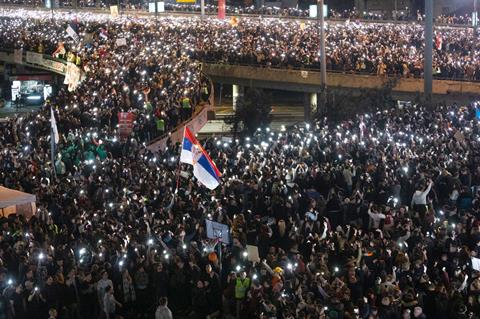
‘This government act significantly jeopardises current research projects and international cooperation, as well as potential future open calls and competitions for international projects, because five hours of science per week will not meet the basic requirements for applying to such projects,’ says Svetlana Stanarević, an assistant professor at the University of Belgrade and a committee member of the Network of Academic Solidarity and Engagement, one of many academic bodies that have criticised the new act.
That view is echoed by Sofija Stefanović, a bioarcheologist based at the University of Novi Sad, who in 2015 became the first Serbian-based researcher to win an ERC grant. ‘With this decree, applying for an ERC project from Serbia has become unlawful,’ she says.
Stefanović is a member of University in Rebellion, a group of hundreds of university researchers who are backing ongoing student anti-corruption protests in the country, which said the rule change ‘severely undermines scientific work and research capacity at Serbian universities’.
‘This policy change is a major setback for Serbian science, particularly in a moment when international collaboration and competitive funding are crucial for maintaining quality research and preventing brain drain,’ the group tells Chemistry World.
Another worry is that many scientists will be paid less as a result, as there is not enough teaching work available for them to fulfil the required number of hours for full-time salaries. ‘Many face a de facto salary cut of nearly 50%,’ says Igor Stanković, researcher at the Institute of Physics, Belgrade, who thinks the regulation will ‘marginalise those who are most committed to research and academic standards’.
Milka Sokolović, a biomedical scientist who heads the European Public Health Alliance, but was speaking in personal capacity, says the consequences for research and international collaboration are ‘inevitable’, and adds that they will become more visible over time. ‘These activities rely not only on time and funding, but also on institutional stability and trust, all of which are now under serious threat,’ she says.
‘Pure retaliation’
Many think the regulation has been made to punish university staff who have been supportive of students’ protests against corruption. Those protests began in November, having initially been triggered by an incident in which a train station roof collapsed and killed 15 people.
‘The reason for the change in this government regulation is pure retaliation by the authoritarian regime, which tried to find a semi-legal way to retaliate against university professors for their support of student demands and their challenge to the authority of government representatives,’ says Neven Isailović, senior research associate at the Institute of History Belgrade.
Sokolović broadly agrees. ‘My impression is that this is part of a broader strategy to suppress the ongoing student protests and broader mobilisation against systemic corruption,’ she says. ‘In the long term, this could be a method of financial subjugation, effectively dismantling university autonomy by undermining its economic foundations.’
The country’s science academy has called on the government to rescind the rule, and several hundred academics from the University of Belgrade have appealed to the constitutional court to review its legality.
The academics say that the caretaker government that issued the decree, legally should not have been making structural changes of this scale and that it bypassed proper legislative procedures. The group also notes that the new rule effectively undermines the future viability of career progression, as academic promotion in Serbia is largely based on research output.
Chemistry World has requested comment from the Serbian government’s ministries for science and higher education, as well as the president’s office, but has received no response.


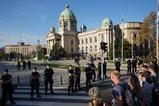
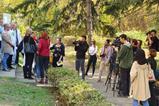
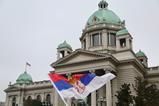


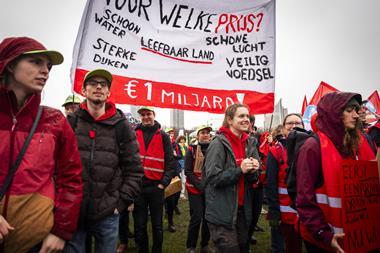









1 Reader's comment